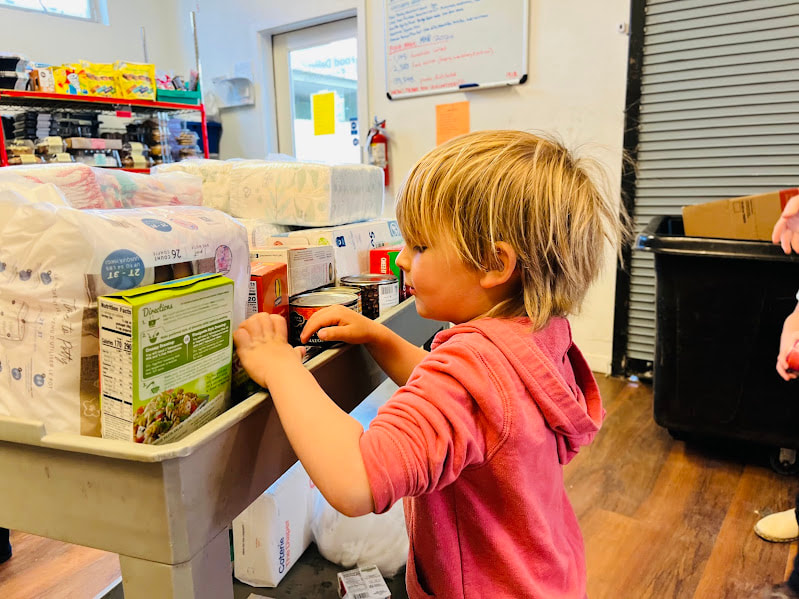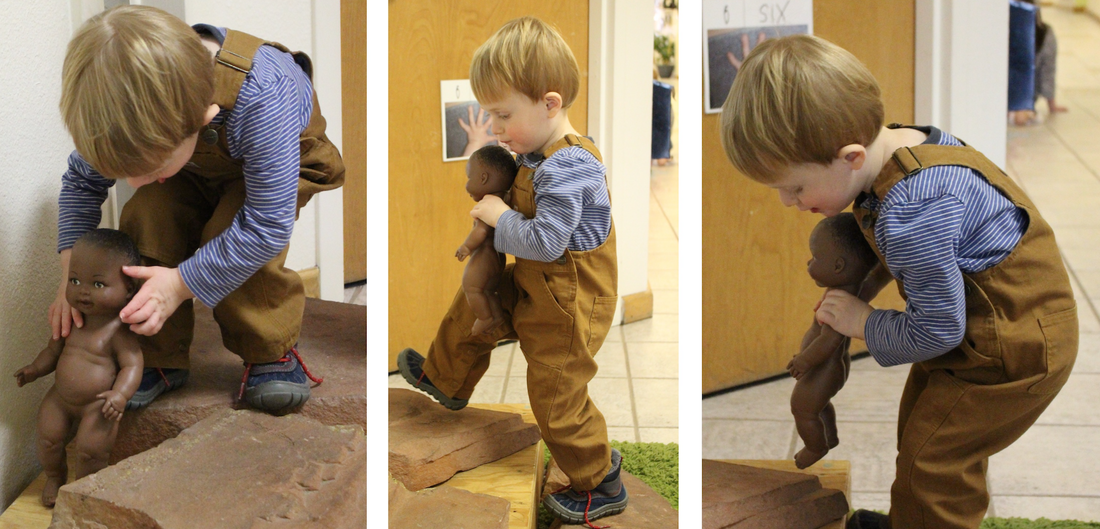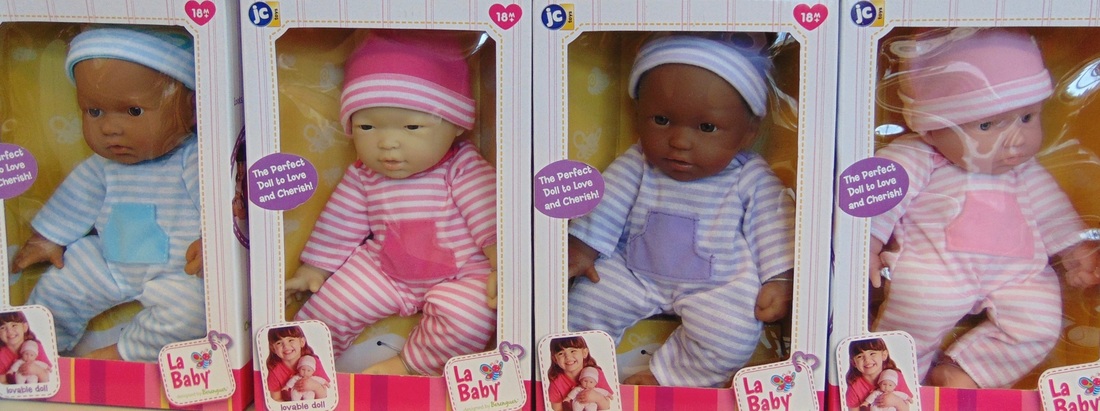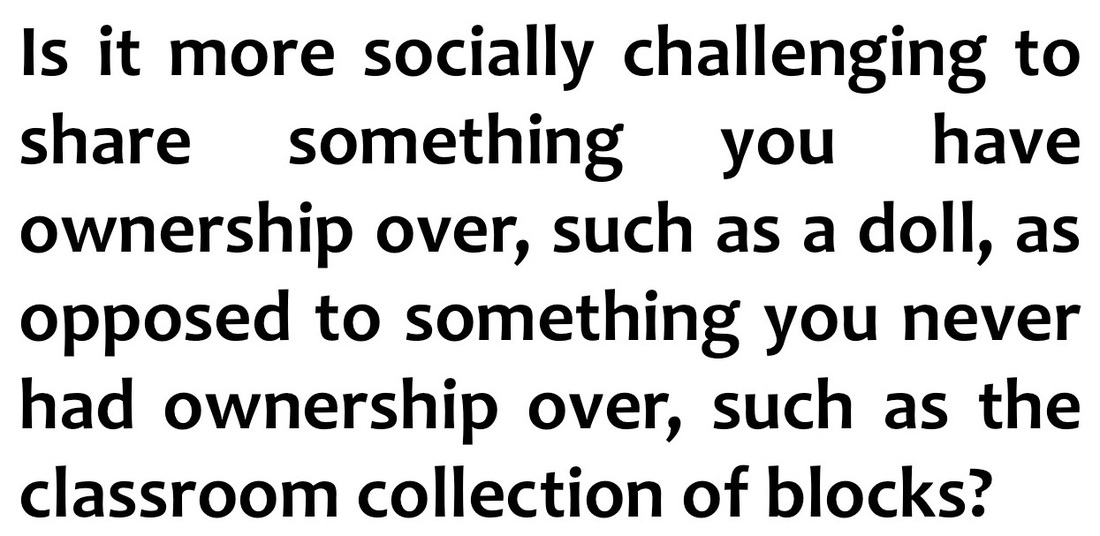In August, a new group of 15 one-year-old children and their families joined the Boulder Journey School community. This was the first school experience for all of the children. The teachers began the year with questions:
|
How are the children interacting with the materials and with one another?
Based on our observations, how can we continue to develop the environment to support the children’s cognitive, physical, social, and emotional development? |
These questions were formulated, then the children's interactions were observed in order to develop answers. The observations were documented and used to inform important curriculum decisions. Planning curriculum in this way gives value to children as active participants, making valuable contributions to how the work unfolds.
The result is a democratic classroom, where all voices are represented.
The result is a democratic classroom, where all voices are represented.
Observations of the children
|
"We noticed a thread emerging. The children were absolutely enamored with the baby dolls in our classroom. They worked independently and with one another, using the baby dolls in a variety of ways." - reflection from Maureen Condon, classroom teacher
|
|
|
The baby dolls were such a significant part of the classroom, that when a new friend joined the class a month later, his classmates immediately introduced him to the baby dolls. It was their way of welcoming Nicholas into the class. In these photos, it appears as if Beatrice is saying, “Welcome to Room 7! Here is a doll. You are going to need this.”
|
"The children’s strategy for welcoming Nicholas into the class is evidence, I think, that while the children were all relatively new to the idea of being in a classroom community, they already possessed social competencies. They were not empty. They entered the world, and the classroom, with the skills needed to establish and maintain relationships with others. When we hold a strong image of children socially, we trust them more in their interactions with one another. Our role, then can be to help them see their competencies, in order to feel successful, which can then have a very positive impact on self-image." - Alison Maher, Education Director
|
Observations of the families
In the mornings, as parents were dropping their children off at school, they would often inquire about their children’s experiences with the dolls. This was the parents’ way of supporting the transition into the classroom.
They would ask, “What will the baby dolls be doing today?”
They would ask, “What will the baby dolls be doing today?”
Parents and teachers shared many heart-felt observations with one another, of children rocking babies, of children holding babies' hands, and so on.
“Will they have a bath today?”
“Will they have a bath today?”
These types of exchanges at the beginning or end of the day between parents and educators are extremely valuable. Educators can take note of what parents are sharing in order to uncover threads about individual families and the class as a whole. In other words, the process of observation and documentation is not only a tool to help us better understand the children, but is also a strategy for better understanding the viewpoints of the adults.
Using these observations to construct shared experiences
Inspired by work observed in a school in Japan, as well as by children's interest in taking care of the baby dolls, teachers and directors created a plan to develop the environment by introducing a family of baby dolls to be adopted by each individual child.
|
"We tend to offer a small collection of dolls for the entire class of children to share. We do not assign individual ownership to these dolls. The dolls are a classroom material. So, I wondered if there was something to be learned from this novel way of offering classroom baby dolls and what we might gain (or possibly even lose?). Because I was aware of the children in Room 7’s affection towards baby dolls, I asked Maureen (classroom teacher) if she and her co-teachers would be willing to engage in an experiment, and they agreed."
- Alison Maher, Education Director |







